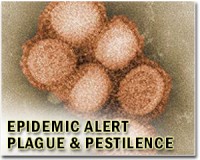| . |  |
. |
Manchester, UK (SPX) May 06, 2011 Scientists have discovered why some people may be protected from harmful parasitic worms naturally while others cannot in what could lead to new therapies for up to one billion people worldwide. Parasitic worms are a major cause of mortality and morbidity affecting up to a billion people, particularly in the Third World, as well as domestic pets and livestock across the globe. Now, University of Manchester researchers have, for the first time, identified a key component of mucus found in the guts of humans and animals that is toxic to worms. "These parasitic worms live in the gut, which is protected by a thick layer of mucus," explained Dr David Thornton, from the University's Wellcome Trust Centre for Cell Matrix Research. "The mucus barrier is not just slime, but a complex mixture of salts, water and large 'sugar-coated' proteins called mucins that give mucus its gel-like properties. "In order to be able to study these debilitating worm diseases, we have been using a mouse model in which we try to cure mice of the whipworm Trichuris muris. This worm is closely related to the human equivalent, Trichuris trichiura. "We previously found that mice that were able to expel this whipworm from the gut made more mucus. Importantly, the mucus from these mice contained the mucin, Muc5ac. This mucin is rarely present in the gut, but when it is, it alters the physical properties of the mucus gel." Co-lead on the study, Professor Richard Grencis, from the Faculty of Life Sciences, continued: "For this new research, we asked how important Muc5ac is during worm infection by using mice lacking the gene for Muc5ac. "We found that mice genetically incapable of producing Muc5ac were unable to expel the worms, despite having a strong immune response against these parasites. This resulted in long-term infections. "Furthermore, we discovered the reason for the importance of Muc5ac is that it is 'toxic' for the worms and damages their health." The study, published in the Journal of Experimental Medicine and featured in Nature's 'research highlights', found that Muc5ac is also essential for the efficient expulsion from the gut of other types of worm that cause problems in humans. These include the hookworm, and the spiral threadworm. Together, these worms cause mortality and morbidity in up to one billion people across the globe. Dr Sumaira Hasnain, the lead experimentalist on the project, added: "For the first time, we have discovered that a single component of the mucus barrier, the Muc5ac mucin, is essential for worm expulsion. "Our research may help to identify who is and who isn't susceptible to parasitic worms, and it may eventually lead to new treatments for people with chronic worm infections."
Share This Article With Planet Earth
Related Links University of Manchester Epidemics on Earth - Bird Flu, HIV/AIDS, Ebola
 Some monkeys born with gene that protects against AIDS
Some monkeys born with gene that protects against AIDSWashington (AFP) May 4, 2011 A certain gene in some monkeys can help boost vaccine protection against simian immunodeficiency virus (SIV), a trait that could help researchers develop better AIDS vaccines for humans, suggested a study out Wednesday. Researchers vaccinated a large group of rhesus monkeys and then exposed them to SIV repeatedly over the course of two weeks. Half became infected, but the other half did not. ... read more |
|
| The content herein, unless otherwise known to be public domain, are Copyright 1995-2010 - SpaceDaily. AFP and UPI Wire Stories are copyright Agence France-Presse and United Press International. ESA Portal Reports are copyright European Space Agency. All NASA sourced material is public domain. Additional copyrights may apply in whole or part to other bona fide parties. Advertising does not imply endorsement,agreement or approval of any opinions, statements or information provided by SpaceDaily on any Web page published or hosted by SpaceDaily. Privacy Statement |